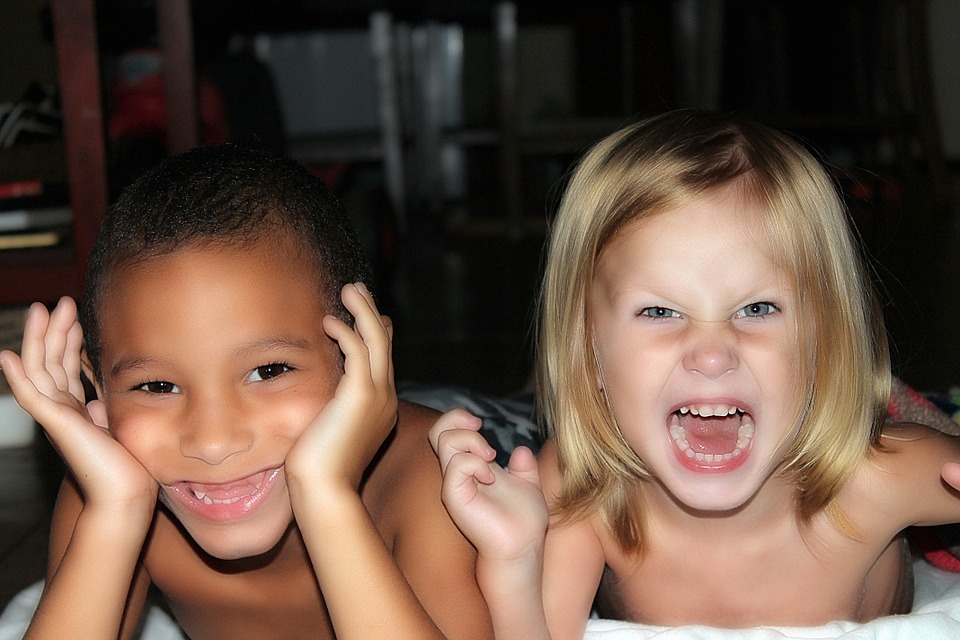One of the most important aspects of successful parenting is raising our children to love themselves, believe in themselves and value themselves. In order to do this, we, as parents, must be on guard to always protect our child’s perception of who they are. We must learn to separate the child from the behavior they display.
Children who grow up to be successful happy adults:
- Have confidence
- Believe in their capabilities
- Are courageous
- Know their worth
- See themselves as deserving
- Value their unique qualities
With that being said, one of the most common mistakes I see parents make is to neglect the critical need to separate the child from the behavior. Children mess up! This is a fact that we can all acknowledge. However, the way parents approach these times has a huge impact on how their child will interpret these situations.
First, parents need to help their children understand that they are ‘learning’. Second, they need to help them accept the fact that they will make mistakes. And third, they need to be sure they understand that those mistakes are expected and are to be viewed as opportunities to learn and grow.
Helping our children maintain a positive mindset when things don’t turn out in a positive way will in large part be determined by how parents address them both verbally and non-verbally.
The words we use:
Words are powerful. To separate the child from the behavior the words you use become even more powerful. The wrong words will demean your child, making him feel that he is less than worthy thus creating a poor self-image.
For example:
“YOU failed the test because YOU didn’t study!
YOU lost your ball because YOU didn’t put it away!
Statements like these will make your child feel bad about themselves and associate their actions with who they are…and in a child’s mind that would be ‘a bad person’.
A more positive approach would be to use words that put the emphasis on the ‘choice of action’
For example:
“The choice to watch television rather than study resulted in a failing grade.”
“Choosing to not put things away opens up the possibility of not being able to find them when you want them again.”
These statements put the focus on the ‘choices’ made that resulted in negative consequences. In that way that child separates the negativity from ‘who they are ‘. The message received now is that they are a good person who made a poor choice.
This also gives them the feeling of power over how to correct this in the future. Children feel helpless and overwhelmed believing they need to ‘be’ someone else, someone who is a better person. But they can clearly see the possibility of making more positive choices.
Our body language:
Because our children are always in the process of developing their language skills they rely a great deal on the energy, feelings and attitude that are represented by our body language.
First, we need to adjust our mindset to expect, accept and understand that our children are learning and will make poor choices along the way. When we fully integrate this attitude into our ‘parenting mindset’ we will have an easier time displaying positive and nurturing body language.
I remember a young boy who felt his mom was always upset with him. According to the mom she felt she put in a great deal of effort to reassure him that she understood when he had made a mistake, didn’t yell or scream and didn’t issue punishments. I found it extremely interesting that this 8 year old boy agreed that she said all of these things…but T he explained that she was ‘mad with her eyes’…and didn’t look at him when she was talking to him. To him, this disconnect spoke volumes of being disappointed and upset with him!
In almost 20 years of working with parents and their children, I have never met a parent who intentionally and willfully harmed their child. However, the fact must be acknowledged that our children do grow up harmed by even the best of intentions.
You, today’s parents, are blessed with more information and available knowledge due to the advancements in psychology and human development than past generations of parents. We are keenly aware of the power we hold through our thoughts and ideas through the understanding of the law of attraction and how that impacts our parenting journey thus influencing the lives or our children.
It is always a matter of choice as to whether we take full advantage of these blessings!


